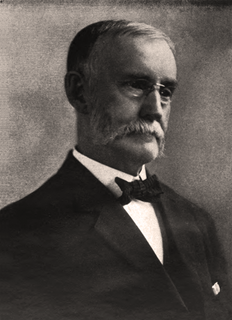A Quote by F. Scott Fitzgerald
How strange to have failed as a social creature—even criminals do not fail that way—they are the law's "Loyal Opposition," so to speak. But the insane are always mere guests on earth, eternal strangers carrying around broken decalogues that they cannot read.
Related Quotes
Narrative should flow as flows the brook down through the hills and the leafy woodlands...a brook that never goes straight for a minute, but goes and goes briskly, sometimes ungrammatically, and sometimes fetching a horseshoe of ¾ of a mile around and at the end of the circuit flowing within a yard of the path that it traversed an hour before; but always going and always following at least one law, always loyal to that law, the law of narrative, which has no law. Nothing to do but make the trip; the how of it is not important, so that the trip is made.
We all know that something is eternal. And it ain’t houses and it ain’t names, and it ain’t earth, and it ain’t even the stars . . . everybody knows in their bones that something is eternal, and that something has to do with human beings. All the greatest people ever lived have been telling us that for five thousand years and yet you’d be surprised how people are always losing hold of it. There’s something way down deep that’s eternal about every human being. -stage manager, in the play OUR TOWN
Opposition can be useful. Every opposition movement is good and useful if it acts within the law... If there are people who act outside the law, then the state must use legal means to impose law in the interests of the majority. That's the way it's done in the U.S. and that's the way it's done in Russia.
We must allow ourselves to think, we must dare to think, even though we fail. It is in the nature of things that we always fail, because we suddenly find it impossible to order our thoughts, because the process of thinking requires us to consider every thought there is, every possible thought. Fundamentally we have always failed, like all the others, whoever they were, even the greatest minds. At some point, they suddenly failed and their system collapsed, as is proved by their writings, which we admire because they venture farthest into failure. To think is to fail, I thought.
Jesus went into the temple and boldly drove out those that bought and sold. And when all was cleared, there was nobody left but Jesus. Observe this, for it is the same with us: when he is alone he is able to speak in the temple of the soul.
If anyone else is speaking in the temple of your soul, Jesus will keep still, as if he were not at home. And he is not at home wherever there are strange guests-guests with whom the soul holds conversation, guests who are seeking to bargain. If Jesus is to speak and be heard, the soul must be alone and quiet.
Christ is building His kingdom with earth's broken things. Men want only the strong, the successful, the victorious, the unbroken, in building their kingdoms; but God is the God of the unsuccessful, of those who have failed. Heaven is filling with earth's broken lives, and there is no bruised reed that Christ cannot take and restore to glorious blessedness and beauty. He can take the life crushed by pain or sorrow and make it into a harp whose music shall be all praise. He can lift earth's saddest failure up to heaven's glory.
Whether it's Mrs Dalloway's lost love or Thérèse Raquin's burgeoning horror, The Paying Guests reminds us of every great novel we've gasped or winced at, or loudly urged the protagonists through, and it does not relent. . . . The Paying Guests is the apotheosis of [Waters'] talent; at least for now. I have tried and failed to find a single negative thing to say about it. Her next will probably be even better. Until then, read it, Flaubert, Zola, and weep.
People - pardon me, journalists and politicians - have often accused me of believing that I'm above the law. And yet, who isn't? Everywhere you prod it, even with the shortest stick, the established system isn't simply corrupt, it's unequivocally putrescent. The law is created by demonstrable criminals, enforced by demonstrable, interpreted by demonstrable criminals, all for demonstrably criminal purposes. Of course I'm above the law. And so are you.
If the rights of civil partners are met differently in law to those of married couples, there is no discrimination in law, and if civil partnerships are seen as somehow 'second class' that is a social attitude which will change and cannot, in any case, be turned around by redefining the law of marriage.







































